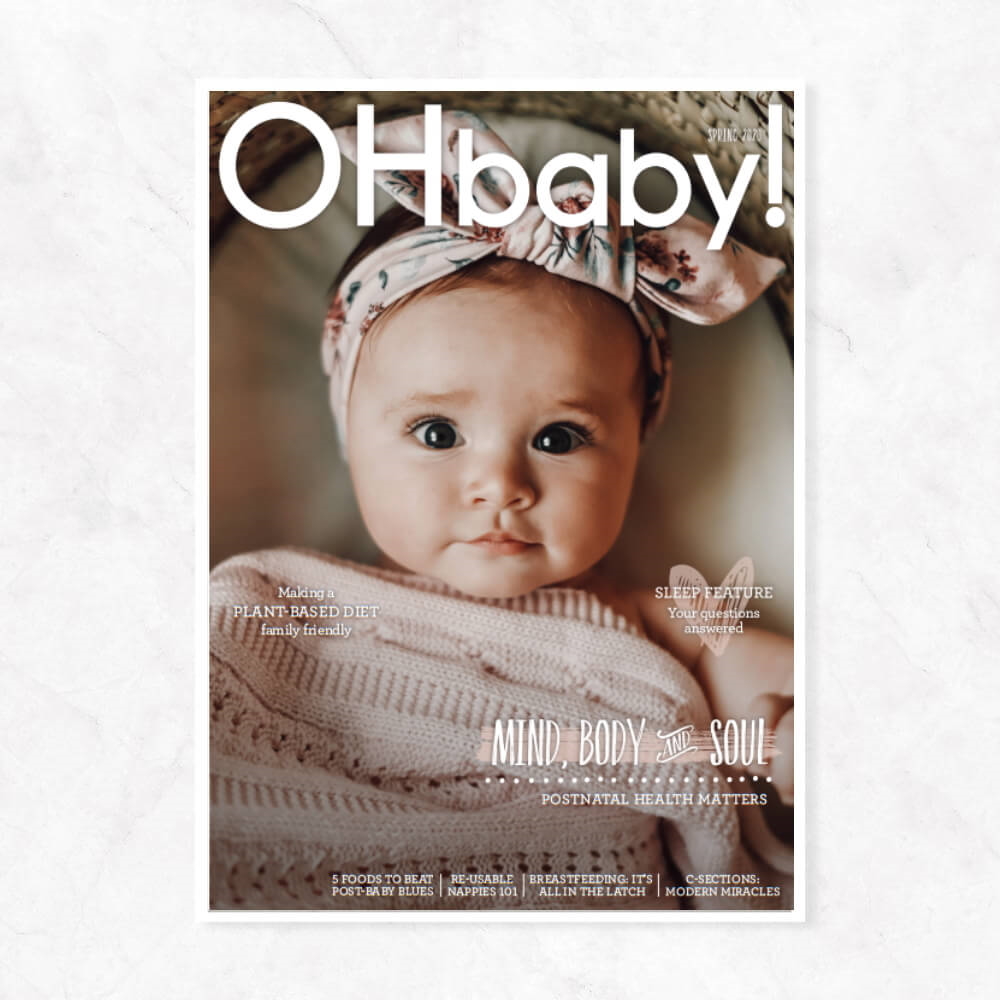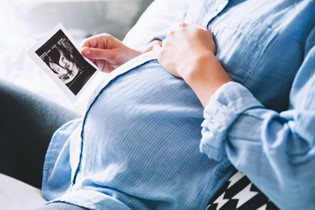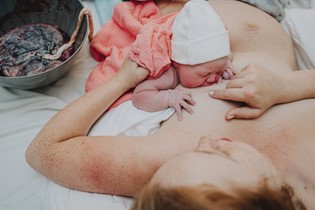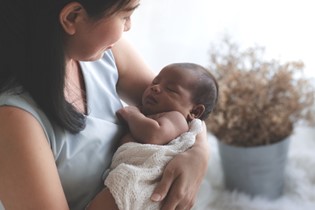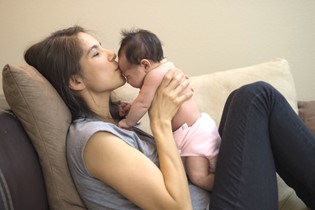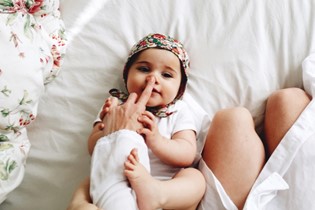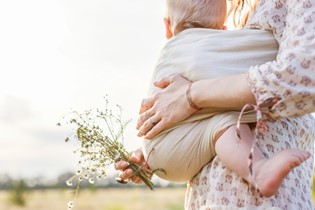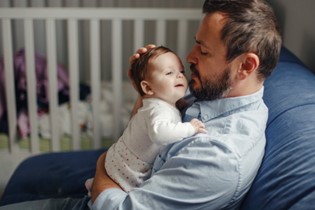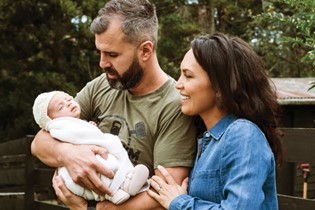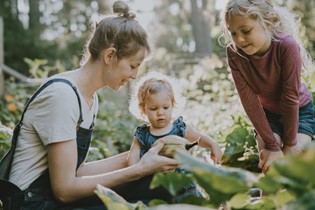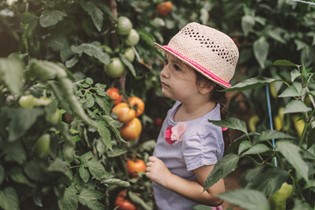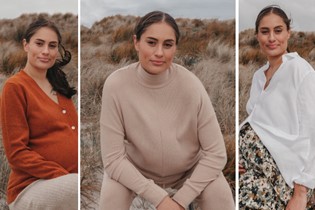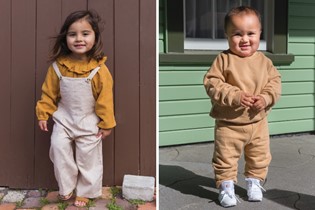After 12 years of heartache their miracle arrived
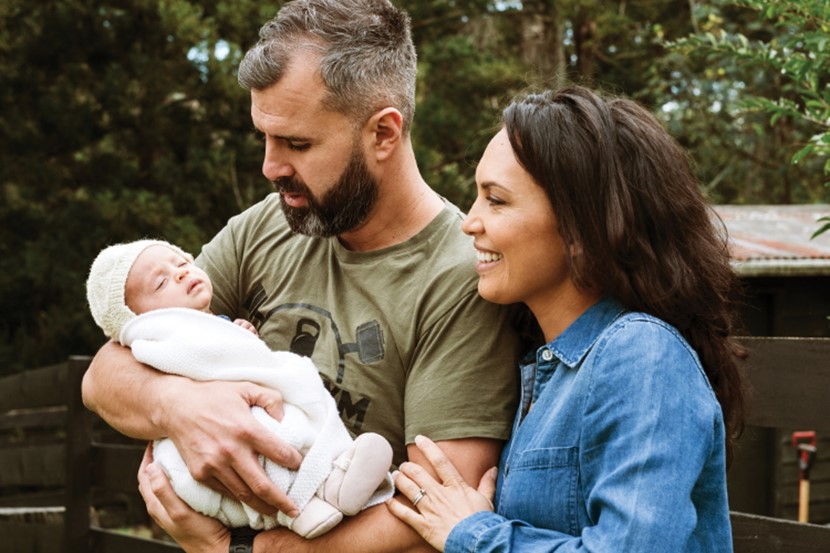
Tamati and Rebekah Norman endured a failed adoption and some serious heartache before baby Mackenzie entered their lives. they share their story with OHbaby!
Tamati and Rebekah Norman happily use the word ‘miracle’ when describing their newborn baby Mackenzie. They waited 12 years for her, enduring a real test of their faith and, at times, of their relationship. However, it turns out that Mackenzie timed her arrival just right. As their tiny baby settles in her dad’s arms, Tamati and Rebekah tell the story of their little miracle. The couple each have a large extended whānau; Tamati (Ngāti Kuri) can count 79 cousins while Rebekah, of Papua New Guinean descent, has a wide network of family in New Zealand, Papua New Guinea (PNG) and Australia.
With this fertile background they naturally assumed that starting their own family would be straightforward.
“Because we both come from such big families, the assumption was that we’d easily get pregnant and have a lot of children too,” says Rebekah. “But that just didn’t happen for us. In the early years of marriage, not getting pregnant wasn’t a big thing, we weren’t desperate. As we got a little older though, we actively started trying – but still nothing.”
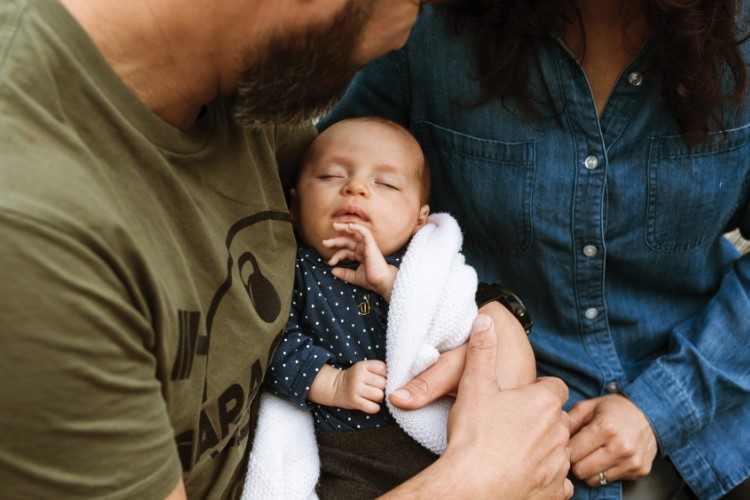
Busy lives
The couple dealt with their pain and frustration by throwing themselves into their work. Tamati, who has a Diploma in Cultural Tourism and Travel and a Bachelor of Māori Development, worked long hours in the public service. He and Rebekah went into business in 2011, importing products from PNG to support Rebekah’s whānau on her home island of Misima. In 2015, the couple and a business partner set up Native Rituals, a skincare and fragrance range that uses natural products from NZ and PNG. Rebekah, a music teacher and trained makeup artist, divided her time between helping with the businesses and her job as head of performing arts at a West Auckland high school. Despite keeping busy though, they began to see their inability to get pregnant as a “failure”, an attitude which adversely affected their outlook on life and their Christian faith.
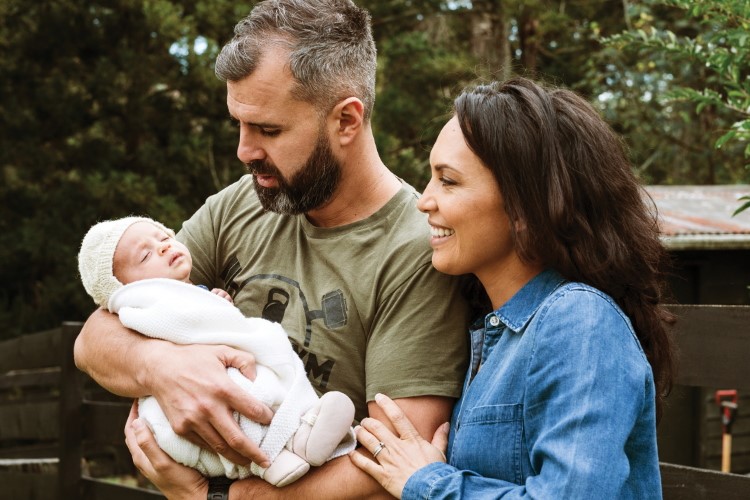
Testing times
“People would ask us, ‘When are you having kids?’ and it was like being stabbed. Those questions were really hard,” says Tamati. “People would also ask, ‘Have you tried this?’ or ‘‘Why aren’t you doing IVF?’ They were well-intentioned but those questions would hurt as we were trying everything we could. It wasn’t something we found easy to talk about without welling up.”
“You put on a façade,” says Rebekah.
“I had almost given up hope and thought it just wouldn’t happen, but you say to people, ‘Yes, we will be doing something about it’. And for me there always was a little bit of hope that if it was to happen, it would – at the right time.”
However, Tamati did give up believing they’d have their own baby, and admits his situation meant he often found it hard being around his many cousins with their children. It was a testing time. The couple, who met at church and had previously been keen church volunteers, found it hard to go there anymore, and admit they felt some anger toward God and their situation. Waiting on ‘His time’ was “not a lot of fun”.
“[The situation] shuts down certain parts of you, and you don’t want to acknowledge that you have this craving because it can be too hard,” says Rebekah. “Our struggle impacted our ability to connect with church because it’s so family oriented, and we stepped back a bit from that community.”
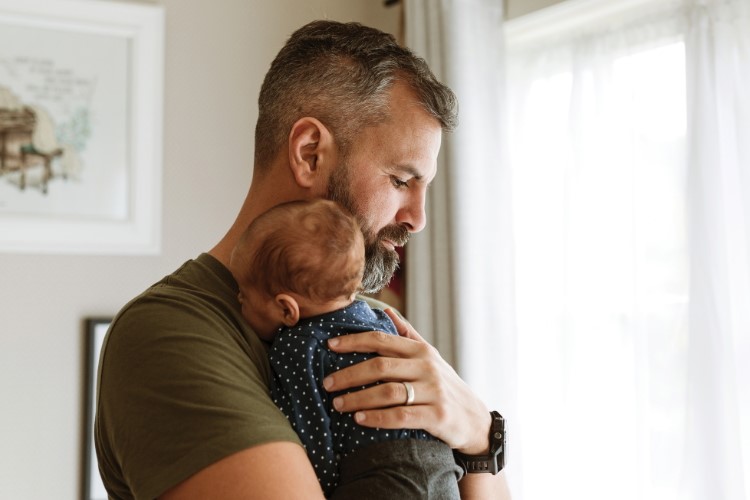
Like four decades in one year
Then along came 2019, a rollercoaster year that Tamati says felt like “40 years rolled into one,” because it was so eventful. Business had not been going well, and he was feeling depressed. In April, at his marae in the Far North, he underwent romiromi, a holistic Māori massage treatment which aims to release blocked energy and help the body regain lost balance and heal.
Tamati says the treatment’s immediate effect was “horrible”, but good in the long run. “It was a tipping point for me. I’m fortunate to have friends and mentors brave enough to ask, ‘Are you okay?’ and one of those conversations, though hard, was a catalyst for me to seek counselling support.” That counselling included couples’ counselling and he and Rebekah gained valuable insights and tools to help their relationship.
“At times there was a lot of tension between us and we weren’t communicating well,” says Rebekah. “Being able to share with each other what our needs were, and also learn to tell ourselves that we were good enough – that was huge.”
They also decided to up the ante on their health, doing regular fitness training, taking Be Pure products such as fish oil, and for Rebekah, zinc, as well as embracing a ketogenic diet which is high in protein and good fats and low in carbs.
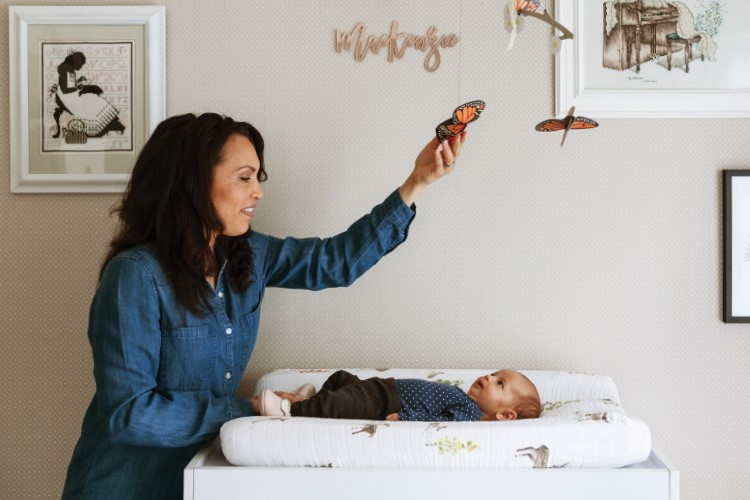
A glimmer of hope
In May they also began the process of adopting a baby. A pregnant young relative of Rebekah’s, who lived with Rebekah’s auntie in PNG, was willing to give the baby up for adoption. “We didn’t know much about the legalities, but a glimmer of hope appeared,” remembers Rebekah.
The couple kept in touch with the baby’s mother via online phone calls, and in June baby David was born. Tamati and Rebekah were hugely excited to get the call asking them to come and get him. However, the situation turned sour when they began to receive requests from local PNG bureaucrats for ‘gratuities’ to enable certain processes, such as the filing of documents, to go ahead. Confused, and worried the adoption was in jeopardy, the couple went to Oranga Tamariki (formerly Child, Youth and Family) which had been advising them throughout the adoption process, to ask for help. But Oranga Tamariki told them that any information it had provided over the six months Tamati had been in contact with them was on an informal basis and there was nothing it could do to help in this case.
Tamati is understandably angry about how he feels they were treated, and is incredulous that, “It’s easier to adopt a child from Europe than it is to adopt a child from a Pacific Island”. This is mainly because PNG is not one of the seven countries with which NZ has inter-country adoption programmes under the international Hague Convention (an agreement designed to set out best practices for inter-country adoption); those countries are Chile, China, Hong Kong, India, the Philippines, Lithuania and Thailand.
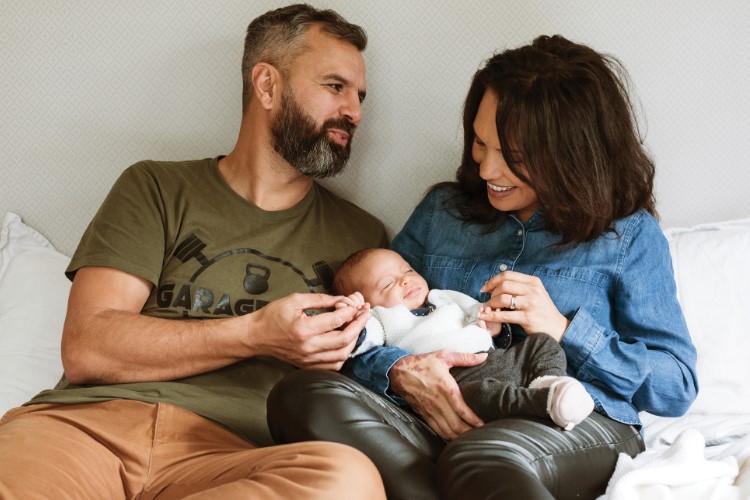
Explosive news
Then came a succession of bombshells. The first was the news from PNG authorities that the Normans couldn’t bring David to NZ unless they moved to PNG and lived there for at least a year (which they were willing to do). At the time they were justifiably upset at this new development, but in hindsight they’re philosophical. “None of this information had been disclosed until then, we’d trusted that the people we dealt with [in PNG] knew what they were doing,” says Rebekah. “But I can see that it’s hard for people running those services in the smaller areas because it’s likely they haven’t had proper training.”
The second bombshell was a Skype call in late August from Rebekah’s auntie to say that David’s mother had taken him to her village to live with David’s father.
This explosive news was followed by a powerful experience for the couple. A visitor to their home prayed for them (in Mandarin), and told them they would have their own baby.
“Through a translator she said God knew our heart’s desire and that we’d have our own baby,” says Tamati. “I have the recording of her praying.”
A few weeks later came a third bombshell: Rebekah discovered she was 10 weeks pregnant. Because she’d never even had a false negative test she only conceded it was actually happening when she saw the second positive test at the doctor’s. “After 12 years of trying, to finally see that positive test, it was incredible.”
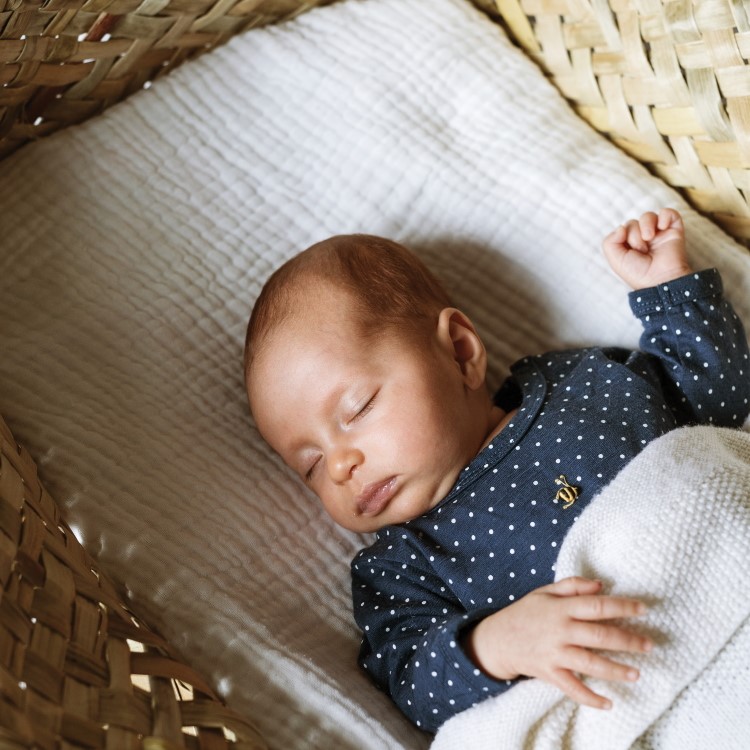
‘Welcome to the world of light’
At 42, Rebekah was deemed of ‘advanced maternal age’ (technically any woman over 35 having her first baby) so her pregnancy carried a slightly higher degree of risk. She scaled down her work commitments and focused on her health – helped by her adoring husband who made her a daily coffee and breakfast of bacon and eggs or an omelette with creamy mushrooms. Laughing, Rebekah confesses that during pregnancy she really craved carbs, and often went early to work to secretly eat toast, and some lunchtimes would indulge in the odd pie.
As NZ settled into level four lockdown, the expectant pair were able to slow their lives and focus on each other and their unborn baby.
They adopted te ao Māori philosophies for Mackenzie’s birth, and Tamati was hugely involved. From clay gifted by Ngāti Whatua he crafted an ipu whenua, a lidded pot, to hold the placenta. He caught Mackenzie as she was born, greeting her with the words, “Nau mai haere mai ki te whai ao marama” (welcome to the world of light). He cut her umbilical cord using a pounamu adze loaned from Ngāti Whatua Health, on a pounamu taonga. He tied off the cord with muka, specially prepared harakeke (flax) which has antibacterial qualities, gifted by whaea Jo Rama, a Māori midwife the couple came to know, who also passed on to them a waha kura, a handwoven flax bassinet for newborns.
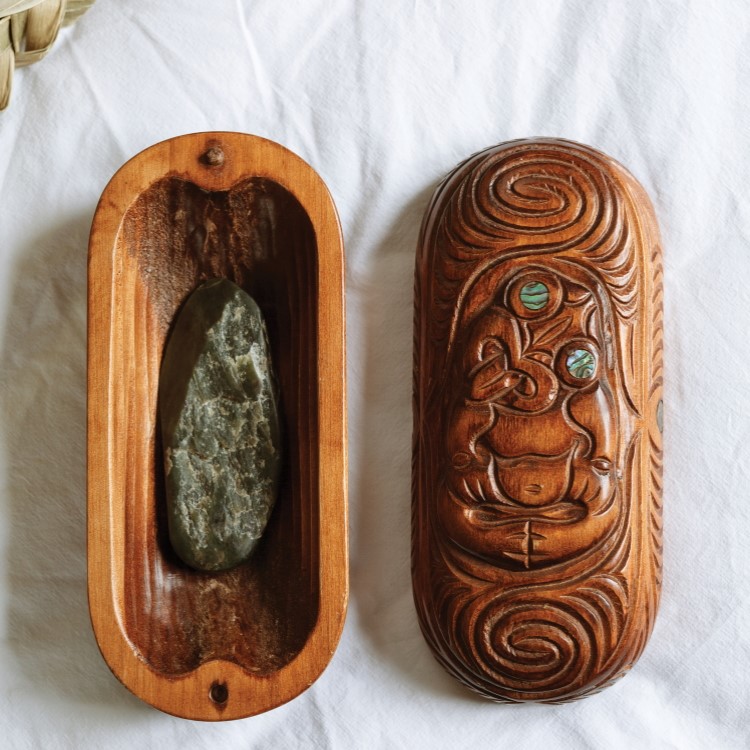
A strong heritage
Their combined heritage will be a strong part of Mackenzie’s life. Her full name is Mackenzie Pingao Didiwalo: Mackenzie is Rebekah’s maiden name, and Rebekah’s father is a fifth-generation Kiwi from the South Island’s Mackenzie Country; Pingao is the name chosen for her by a close relative – it’s a native grass that grows on the sand dunes in the Far North, and a sacred plant for Tamati’s iwi, said to ‘bind the first breath of the ocean and the first breath of the land’; Didiwalo is Rebekah’s mother’s Papua New Guinean name.
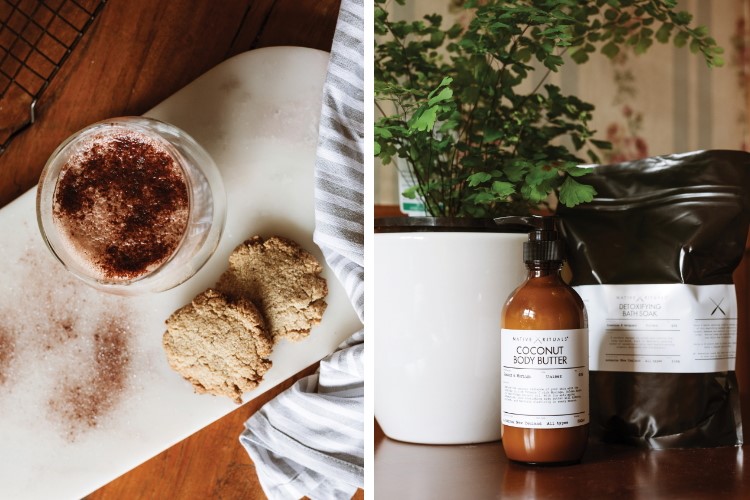
Perfect timing
They stress that the benefits of getting exercise, eating well and relaxing can’t be overlooked when trying for a baby, but they believe it was God’s timing all along. “The great thing about the way our lives worked out is that we’ve been able to give time to our nephews and nieces,” says Rebekah. “And in hindsight it would have been incredibly difficult settling David into a new country and culture as well as having a newborn baby. I’m really happy he’s with his family.”
Even the folding of their importing business due to Covid-19 restrictions was, in some ways, a blessing and, ever the entrepreneurs, they’re now setting up a new enterprise selling keto-friendly cookies suitable for women with gestational diabetes, diabetics and people wanting to lose weight. They believe this business and Native Rituals reflect their aim of helping people find wellness, inside and out.
“If you can find rest in your kai and be at peace with what you see in the mirror, it makes a big difference,” says Tamati. “If you love yourself, it’s easier to love others.”
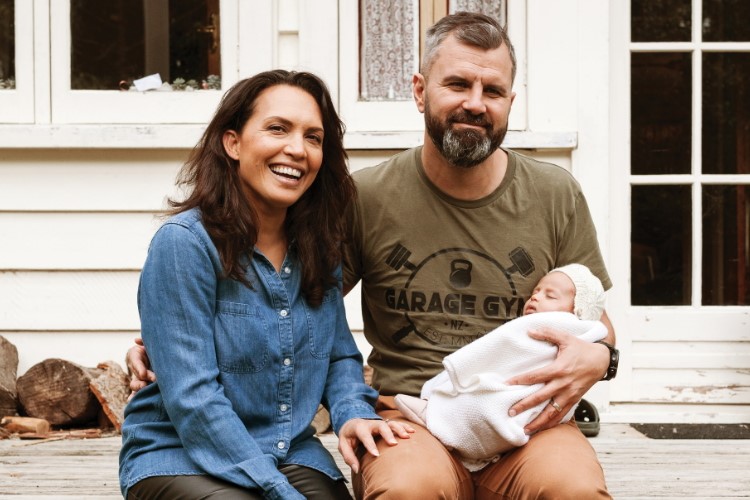
Healing the pain
They’re very grateful for their little miracle, but joke that it’s slightly surreal they are finally parents. “I still feel like I need to slap myself to see if I’ll wake up,” laughs Tamati.
It’s clear that Mackenzie’s arrival has brought healing to her parents, personally and to their relationship as well. “I can be a bit of a grump sometimes,” says Tamati grinning. “The adoption frustration gave me a bit of a hard edge. [Mackenzie] has started to thaw the iceberg that had formed. It’s softened me. Once bubs was born all that pain … was washed away.”
Photography: Alice Veysey
Words: Christine Stride

AS FEATURED IN ISSUE 51 OF OHbaby! MAGAZINE. CHECK OUT OTHER ARTICLES IN THIS ISSUE BELOW
